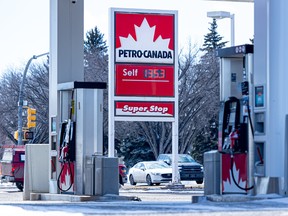Carney killed the tax so the final payment ‘is a refund for tax you never paid,’ says Queens prof, adding this ‘once-over thing’ could cost the government between $2.7 billion and $3 billion
Carney killed the tax so the final payment ‘is a refund for tax you never paid,’ says Queens prof, adding this ‘once-over thing’ could cost the government between $2.7 billion and $3 billion

On March 14, on his first day in office, Prime Minister Mark Carney ended the consumer carbon tax and, with it, the Canada Carbon Rebate payment.
“We will be eliminating the Canada fuel charge, the consumer fuel charge, immediately,” he said. “This will make a difference to hard-pressed Canadians, but it is part of a much bigger set of measures that this government is taking to ensure that we fight against climate change, that our companies are competitive and the country moves forward.”
Story continues below
However, the government has also promised one last payment of the Canada Carbon Rebate (CCR), which a Queens University professor points out is one too many.
Here’s what to know about the end of the tax.
When did the consumer carbon tax end?
Despite Carney’s use of the term “immediately,” the order-in-council that he signed in front of cabinet ministers and the press actually stipulated that “the fuel charge be removed as of April 1, 2025.” And it was.
What was the effect?
The most dramatic change was in the price of gas, which had been taxed at 17.6 cents per litre, and home heating fuels, which had a consumer levy of $85 per tonne, based on greenhouse gas emissions. Almost immediately prices began falling. The CAA reported that the average price for a litre of gas in Canada on April 8 was $1.32. A week before that (and before the tax ended) it was $1.51. The highest price in the last year was $1.72 in April 2024.
Is the final rebate fair?
It’s more than fair, according to Robin Boadway, Emeritus Professor at Queens University. He points that the “rebate” is on taxes consumers haven’t even paid yet, and now never will.
Story continues below
“The issue is pretty straightforward,” he told the National Post. “The carbon tax rebate was paid in advance of carbon tax revenues being collected. When the carbon tax was terminated, no more revenues were coming in, so there was no longer a basis for continuing the rebate.”
Stories You May Like
The government website agrees. “The rebate is tax-free and paid four times a year in advance, before households face increased costs from carbon pricing,” it says.
Boadway continued: “In effect, the upcoming rebate will be for carbon taxes that will not be collected, so the revenues to finance it will have to come from federal government general revenues. So, those persons who are eligible for the rebate will be getting a transfer that is not really a rebate for carbon tax revenues.”
Boadway says the government did not explain why it was giving out one final payment, but he estimated this “once-over thing” could cost between $2.7 billion and $3 billion.
When does the final rebate go out?
The final CCR payments will roll out beginning April 22 to Canadians in eight provinces: Alberta, Manitoba, New Brunswick, Newfoundland and Labrador, Nova Scotia, Ontario, Prince Edward Island and Saskatchewan. (British Columbia and Quebec are excluded because they have their own carbon-pricing systems, as do the territories.)

